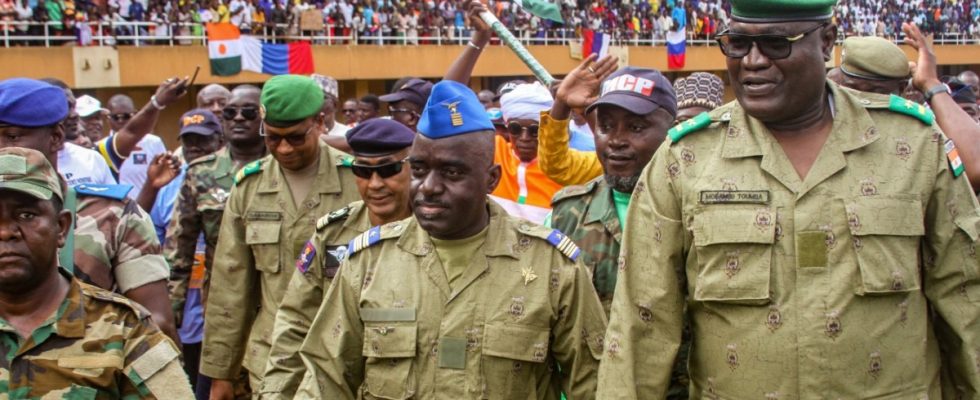Was Ecowas just bluffing? The West African economic community had given the putschists in Niger a week to cede power back to the democratically elected government. Otherwise, she threatened consequences – including gun violence. The deadline ended on Sunday. And it happened: nothing. Initially, there was no declaration of war or any other declaration from Ecowas. On Monday afternoon, the organization only announced that the next special session would take place in Nigeria’s capital, Abuja, on Thursday.
At first glance, this silence seems to confirm those who believed from the outset that Ecowas had made an empty threat. The group has already carried out military operations – most recently in Gambia in 2017 – but an intervention in Niger would be far more risky. The country is three and a half times the size of Germany (and more than 100 times the size of Gambia). And it may receive reinforcements from its neighbors Mali and Burkina Faso, who have promised the junta in Niger armed aid in the event of an attack.
The bulldog wanted to “bite back” – does it remain toothless after all?
If you set an ultimatum and then let it pass, you risk sending a signal of weakness. Exactly the opposite of what Ecowas actually wanted. After three coups in Mali, Burkina Faso and Guinea, the group of states wanted to demonstrate that it would not simply accept another deposed government “like a toothless bulldog,” according to Nigerian President Bola Tinubu. Ecowas should “bite back”. Is the group proving to be toothless after all?
It’s too early for such assessments, says Djiby Sow from the Institute for Security Studies in Dakar, Senegal. Ecowas never said that the intervention would begin when the ultimatum ended. The group has announced that in this case it will take the necessary means to reinstate the elected government in Niger. Ecowas will now explore what these are and whether violence is part of it until the meeting on Thursday. Two days later, on Saturday, a second ultimatum to the putschists – from the African Union – will end: “How assertive Ecowas is will be seen at the end of the week,” says Sow.
Sow thinks it’s right that the West African countries didn’t take the decision lightly. Your need to send a signal to the putschists – and to potential imitators in your own country – is understandable. But the risk of plunging the entire region into war is real. He believes that Mali’s and Burkina Faso’s announcement that they will provide military support to Niger is credible. If Ecowas decides to take action against the putschists in one country, the putschists in the neighboring countries may no longer feel safe either.
Even a militarily successful intervention would face a problem
How much Mali and Burkina Faso could contribute to defending Niger against intervention, however, is another question. Their armies would have to traverse the border region of the three countries, teeming with terrorists and bandits. That’s another reason why the military challenge of an intervention in Niger shouldn’t be exaggerated, says Sow. Yes, the country is big – but the capital Niamey is just 200 kilometers from the Nigerian border. From that 225-million-inhabitant colossus that would have to provide the most soldiers in an invasion.
From Sow’s point of view, another factor is much more important in the risk assessment: whether the stated goal can be achieved by force of arms. “Ecowas has to ask itself: would a President Bazoum reinstated after a military intervention be able to rule Niger without the help of foreign troops in the country?” says Sow. That seems increasingly unlikely – and that’s not least due to the Ecowas ultimatum, which brought many supporters to the putschists in Niger who were at least skeptical at first.
Ecowas is now doing both: The group is preparing an invasion and at the same time is still trying to find a diplomatic solution – also initiated by Nigeria’s parliament, which slowed down President Tinubu, who was determined to react harshly, with a resolution at the weekend. The only question is: What could a compromise look like if one side demands the other’s self-dissolution?
All previous attempts at mediation have failed. And Djiby Sow also finds it difficult to imagine a center that both sides could move towards. But at least one possible beginning occurs to him: a transition moderated by the putschists and monitored by Ecowas, which will lead to elections in the near future. Niger’s coup general, Abdourahmane Tchiani, has indicated he is prepared to do so. But other alleged interim rulers did the same – and then never gave up power again.

